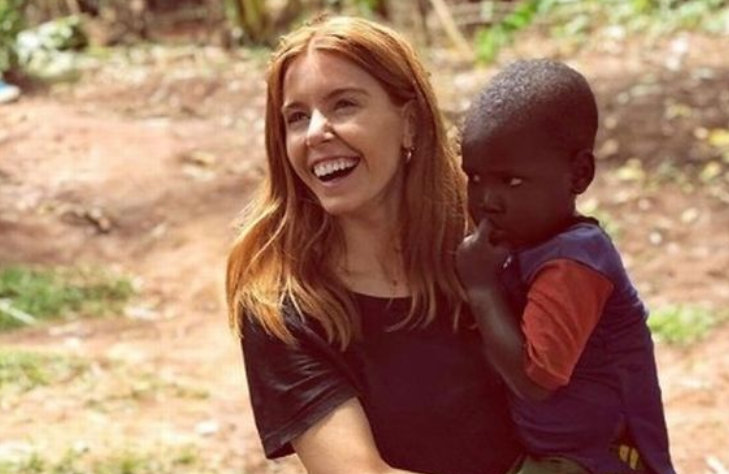Humanitarian or white saviour? Celebrities in Africa spark online furore
Sign up now: Get ST's newsletters delivered to your inbox

TV presenter Stacey Dooley was filmed holding a black child for British charity Comic Relief.
SCREENSHOT: TWITTER
Follow topic:
LONDON (THOMSON REUTERS FOUNDATION) - The role of celebrities promoting charities in Africa has come under fire after a British politician accused a television presenter filmed in Uganda of being a "white saviour" promoting colonial ideas of Africans being "helpless victims".
British charity Comic Relief, which enlists celebrities to help raise funds for the world's poorest communities, faced harsh criticism from opposition Labour lawmaker David Lammy after presenter Stacey Dooley was filmed holding a black child.
Lammy, who is of Guyanese descent, said online photos of Dooley, who will feature in a BBC documentary later this month about her trip to Uganda, evoked negative stereotypes about Africa and its reliance on Western white people for help.
Dooley, 31, is one in a long list of British celebrities - from Oscar-winning actress Olivia Colman, singer Ed Sheeran, to Olympic champion Mo Farah - to be engaged by aid groups to champion their causes and attract donors by helping to raise public awareness of issues.
"Comic Relief should be helping to establish an image of African people as equals to be respected rather than helpless victims to be pitied," Lammy posted on Twitter.
"The world does not need any more white saviours. As I've said before, this just perpetuates tired and unhelpful stereotypes. Let's instead promote voices from across the continent of Africa and have serious debate."
Comic Relief, which raised nearly £80 million (S$140 million) in 2017 from its Red Nose Day appeal, said it made "no apologies" for its decision to feature Dooley.
"We are really grateful that Stacey Dooley... agreed to go to Uganda to discover more about projects the British people have generously funded there and make no apologies for this," the group said in a statement.
"In her film, people working with or supported by Comic Relief projects tell their own stories in their own words."
Last year, Comic Relief pledged it would use local heroes rather than celebrities in clips from Africa after it was slammed for featuring singer Ed Sheeran in a 2017 video with street children in Liberia.
Dooley, a documentary filmmaker who rose to fame when she featured in a 2008 reality show about the impact of fast fashion in India, questioned why her race was a problem.
"David, is the issue with me being white? (Genuine question) Because if that's the case, you could always go over there and try raise awareness?" Dooley posted on Twitter in response to Lammy's criticism.
"I saw projects that were saving lives with the money. Kids lives," she added.
The controversy has caused heated online debates.
Some have argued it was offensive to exclude white people who genuinely want to help people in Africa.
Others argued it perpetuated the idea that Africa needed white people to save them from poverty or disease, and promoted Western celebrities over local unsung heroes.
"There are levels to the white saviour complex. You can mean well, do some good along the way and actively be perpetuating the (white saviour complex)," said Uganda-based campaign group No White Saviors.
"Most of you are not intentionally causing harm but once you are presented with these unintended consequences, you are responsible to do better," the group posted on Twitter.
The practice of using celebrities drew criticism last January from the outgoing head of the Charity Commission for England and Wales, the non-profit sector's watchdog, who urged agencies to stop chasing stars and focus instead on the people they were set up to help.

